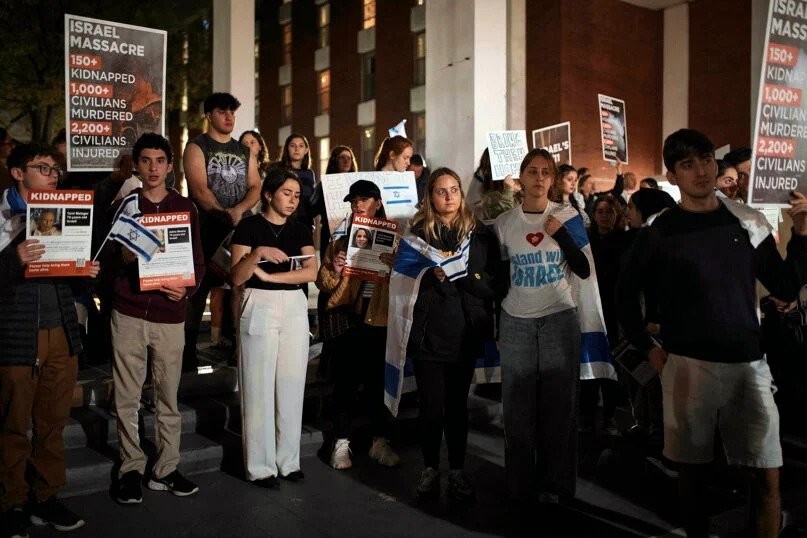Jewish, Muslim students on college campuses feel threatened, scared

Jewish students at Rutgers University and members of the community attend a vigil for Israel on October 25. (AP Photo/Andres Kudacki)
After hundreds of students at the University of California, Berkeley, staged a walkout last week to protest Israel’s military strikes in Gaza, Daniel Solomon, a graduate teaching assistant at the school, made a snap decision: Instead of the usual location near Sproul Hall, within earshot of pro-Palestinian groups’ chants, he moved his class’s meeting place to Berkeley’s chapter of Hillel, the national Jewish campus organization.
Solomon said one consideration, given recent tensions on campus, was that the protests might devolve into violence. But more important, he wanted to provide a safe space to his group of mostly Jewish students taking a class on the Holocaust.
“These kids have been barraged with some of the most vitriolic, heinous rhetoric,” said Solomon, 29-year-old Ph.D. candidate in history. “Many of them have felt extremely worn down. I wanted to do something that I thought would be protective of them.”





